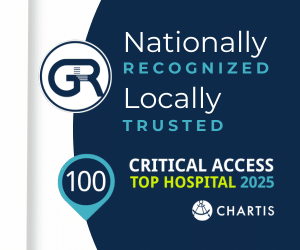
ODOT faces $354 million budget shortfall, potential cuts to services and jobs across Oregon
By Joe Hathaway on Tuesday, August 20th, 2024 in More Top Stories Northeastern Oregon News
EASTERN OREGON — The Oregon Department of Transportation (ODOT) is facing a projected $354 million budget shortfall for the 2025-2027 biennium, driven by declining gas tax revenues, rising inflation, and strict funding limitations. As a result, the agency may need to implement significant service reductions and cut nearly 1,000 positions statewide, including 104 jobs in Region 5, which covers all of Eastern Oregon.
According to a report on the agency’s website, ODOT’s revenue challenges stem primarily from three factors. First, the increasing use of fuel-efficient and electric vehicles has led to a decline in gas tax revenues, a key funding source for ODOT. Second, inflation has driven up the cost of maintaining the state’s transportation infrastructure, and unlike many other states, Oregon’s gas tax and vehicle fees are not adjusted for inflation. Third, state law allocates nearly half of the state highway fund to cities and counties, with much of the remainder committed to paying off bonds and investing in new projects, leaving only about 20% for highway maintenance and agency operations.
In response to the financial strain, ODOT has modeled potential cuts that could include the closure of 17 of its 88 maintenance stations and a substantial reduction in services. The proposed cuts could lead to slower crash response times, longer highway closures, reduced emergency response to floods, wildfires, and winter storms, and deteriorating road conditions statewide.
Winter road services could also be significantly affected, with ODOT planning to purchase only 50% of the winter materials, such as salt and deicer, traditionally used. This reduction would impact service levels on interstates and major highways, with little to no service on less-traveled roads.
In addition to cuts in maintenance and operations, other areas of the agency would also be affected. DMV services could slow, transportation projects may be delayed, and public records requests could face longer processing times. Reduced staffing could also increase the risk of digital systems failures within the agency.
Union County Commissioner Paul Anderes voiced concerns to Elkhorn Media Group related to the declining gas tax revenues, stating, “I understand Salem has streets and roads that the state is responsible for maintaining, but we’ve got a fair number of them out here, too. One of the things we’re hoping to do is make sure that we maintain the 50-30-20 split. And what that is is the state gas tax, 50% of it goes to the Oregon Department of Transportation, 30% of it goes to counties, and 20% of it goes to cities.”
Anderes also expressed concern that any new revenue sources introduced might not benefit counties proportionally, adding, “If they do put in additional funding sources, because everybody knows the gas tax is diminishing with better mileage cars all the time. But what the concern is is that they will find a new revenue source and keep 100% of that. So we would continue to decline in our portion of the revenue.”
ODOT leadership says in the report it is hopeful that Governor Kotek and the Oregon Legislature will address the budget shortfall during the 2025 legislative session and secure the necessary funding to prevent these cuts. The budget will be finalized in July 2025 when the legislature adopts the state budget for the biennium. If additional revenue is not provided, ODOT may be required to implement further reductions based on the staffing situation at that time.
In a statement to Elkhorn Media Group, Governor Kotek’s office stated, “ODOT employees in Region 5 provide Eastern Oregonians with essential services, and the Governor sees their work as vital to the safety and prosperity of the whole state. As the Governor prepares her recommended budget, sufficient and sustainable funding for ODOT is top of mind for her. She strongly supports legislative efforts in 2025 to forestall the detrimental service reductions presented by ODOT.”
Elkhorn Media Group has reached out to ODOT for comment on the proposed cuts, as well as local legislators such as State Sen. Lynn Findley, State Sen. Bill Hansell, State Rep. Bobby Levy and State Rep. Mark Owens.









